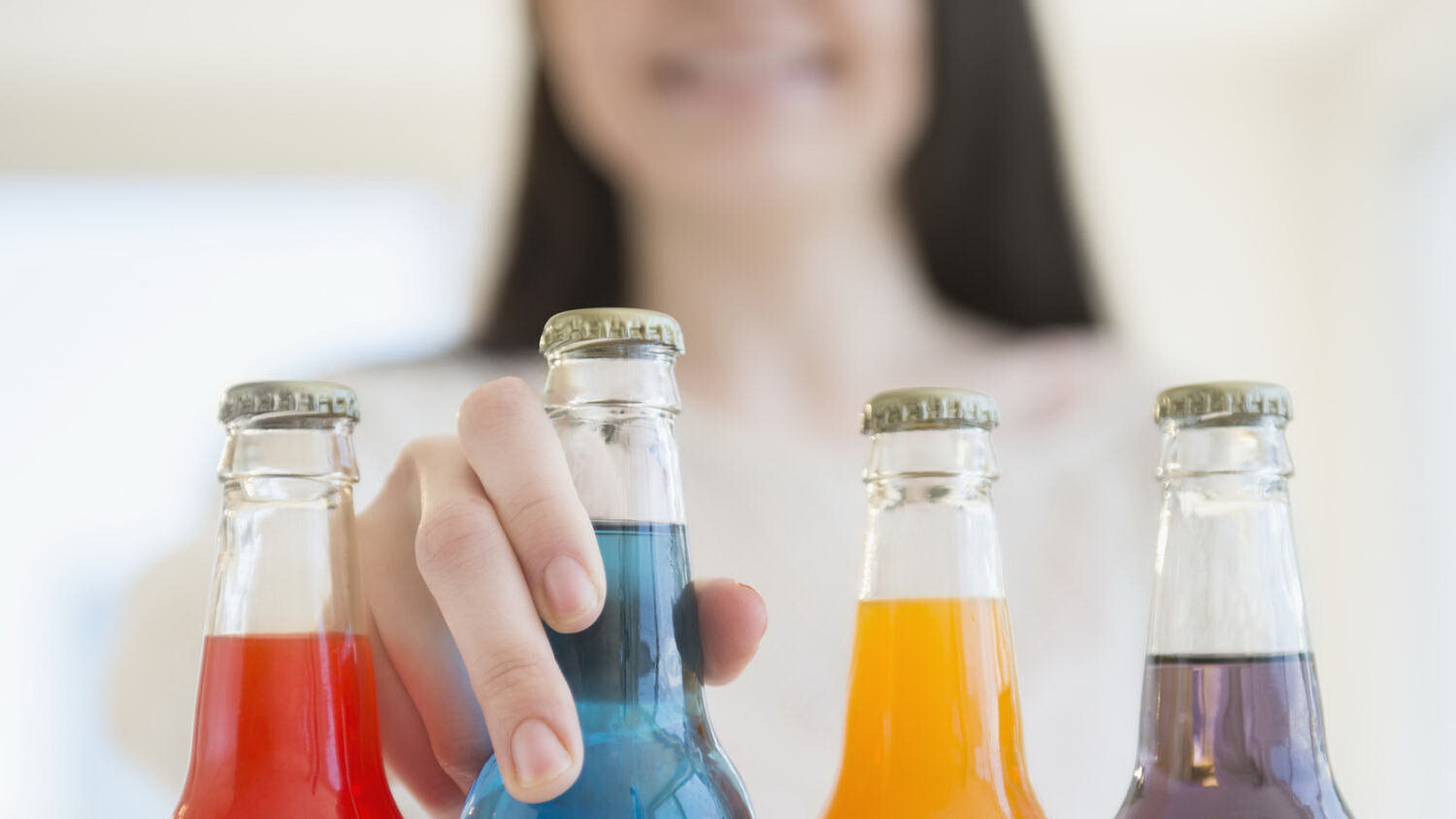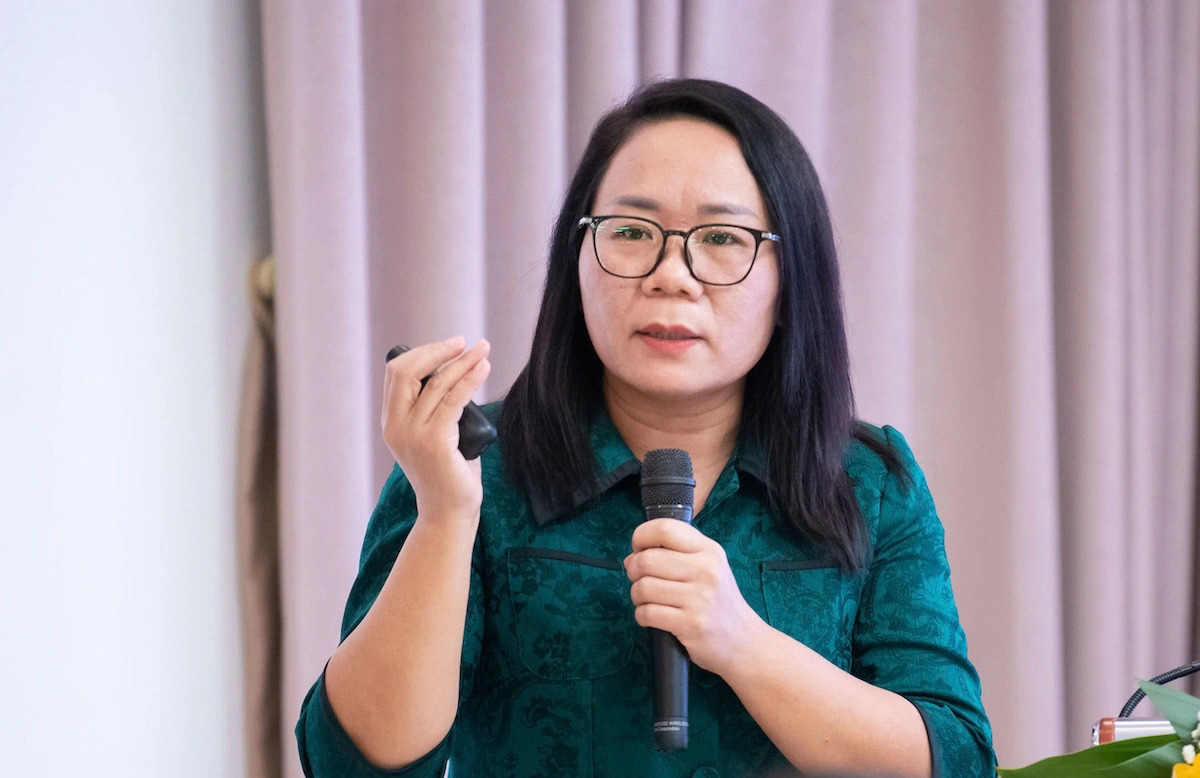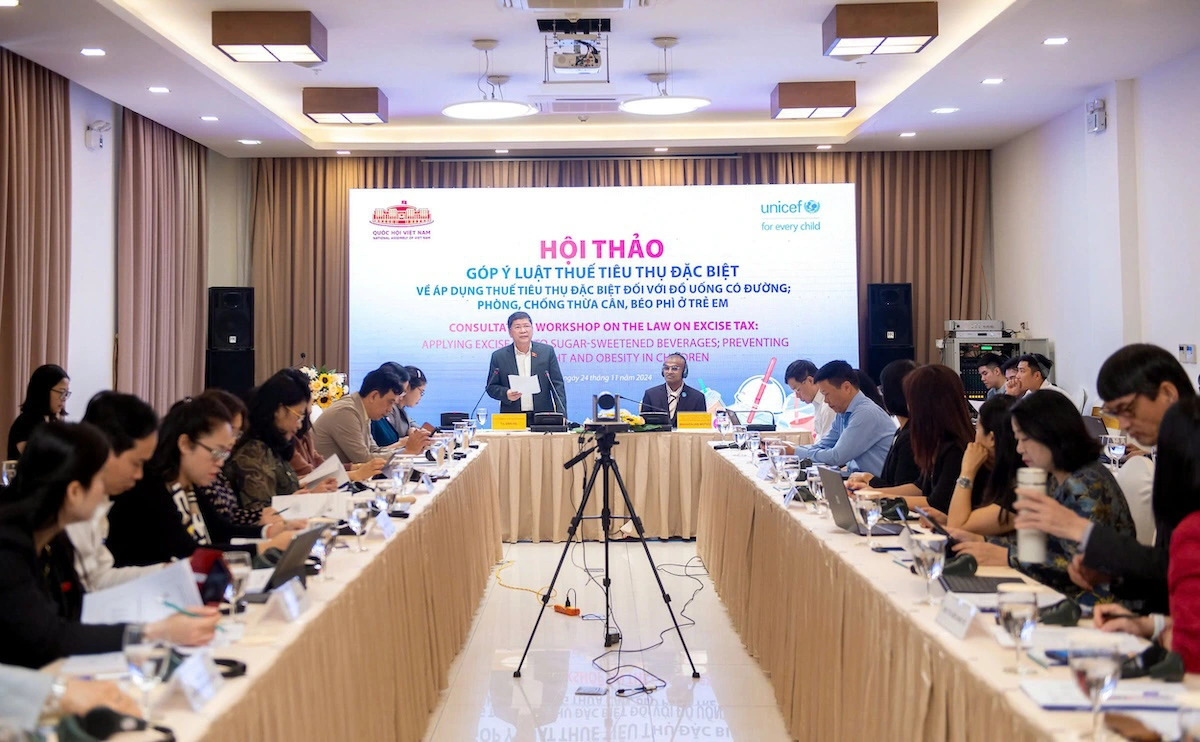As the rate of overweight and obesity among children in the 5-19 age range in Vietnam more than doubled within just 10 years to 19 percent in 2020, the draft Law on Excise Tax has suggested that a special consumption duty, or excise tax, of 10 percent be imposed on sugar-sweetened beverages (SSBs).
The increasing obesity among Vietnamese children and related recommendations to address the problem were presented at a consultation workshop held in Hanoi on Sunday, focusing on an excise tax on SSB as part of the draft Law on Excise Tax.
Jointly organized by UNICEF Vietnam and the National Assembly Committee for Culture and Education, the event was aimed at providing participants with updated information on children’s obesity, as a reference for them to give opinions on the draft law.
Do Hong Phuong, a nutrition policy specialist at UNICEF Vietnam, warned that the rate of overweight and obesity among school-age children, from five to 19, increased to 19 percent in 2020 from 8.5 percent in 2010, which is 1.7 percentage points higher than the average across Southeast Asia.
Vietnam's rate exceeds those of other low- and middle-income countries in the region, including Cambodia (13.4 percent), Laos (16.6 percent), Myanmar (14.1 percent), the Philippines (14.5 percent), and Indonesia (18 percent).
If there is no action taken to limit the consumption of SSBs, it is estimated that nearly two million Vietnamese children aged five and up will become overweight or obese by 2030, Phuong warned.
In East Asia and the Pacific, overweight and obesity affect 90 million children and adolescents, including 11 million under five, while the global rate of overweight children is 26 percent.
Assoc. Prof. Dr. Truong Tuyet Mai, deputy director of the National Institute of Nutrition, under the Ministry of Health, warned that prolonged SSB consumption could increase the risk of obesity, cancer, high blood pressure, digestive problems, and urinary and kidney diseases, among others.
|
|
| Assoc. Prof. Dr. Truong Tuyet Mai, deputy director of the National Institute of Nutrition, speaks at a workshop in Hanoi on November 24, 2024, focusing on overweight and obesity among Vietnamese children and the proposition on levying an excise tax on sugar-sweetened beverages in Vietnam. Photo: Gia Han / Tuoi Tre |
She cited several studies as showing that an adult who drinks one SSB can a day for one year will gain 6.75kg in weight.
“As for children who recurrently drink SSBs, their body mass index (BMI) increases 0.24 compared to those who do not,” Dr. Mai stated, adding that kids aged two to five who frequently drink SSBs face a 43-percent higher risk of obesity.
The expert warned that excessive consumption of SSBs during childhood is linked to a higher risk of being overweight or obese by age five.
Drinking an additional 100ml of SSBs per day is associated with a BMI spike and a 1.2-fold greater risk of being overweight or obese by age six.
Emphasizing that childhood obesity is a global issue that requires urgent action, Dr. Mai recommended limiting the consumption of SSBs in kids.
According to UNICEF's recommendations, children under two should not consume any food or drink with added sugar.
Children aged 2-18 should limit sugar consumption to less than 25 grams per day, and should not drink more than 235ml of SSBs weekly, Dr. Mai said.
Data released at the workshop showed that total soft drink consumption in Vietnam rose rapidly to 6.67 billion liters in 2023 from 1.59 billion liters in 2009.
Many other health experts emphasized that synchronous measures should be taken to prevent excessive weight and obesity in children, including taxing SSBs and reducing consumption.
Nutritionist Phuong said that the World Health Organization advises applying tax and price measures to lower SSB consumption.
|
|
| A workshop held in Hanoi on November 24, 2024 focuses on overweight and obesity among Vietnamese children and the proposition on levying an excise tax on sugar-sweetened beverages in Vietnam. Photo: Gia Han / Tuoi Tre |
According to the draft Law on Excise Tax, an excise tax rate of 10 percent is proposed on SSBs with a sugar content of over five grams per 100ml.
Citing a 2022 study by the Hanoi University of Public Health, the specialist said that imposing an excise duty on SSBs in Vietnam would have several benefits, including obesity rate reduction and the risk of related diseases, as well as saving future healthcare costs.
Phuong also urged relevant authorities to launch media campaigns to curb SSB consumption.
Many workshop participants agreed with the proposed tax rate, with a few suggesting clarifying if sugar is the main cause of obesity and others asking why the ratio of five grams per 100ml has been chosen as the threshold for taxation.
Dr. Nguyen Huy Quang, former head of the health ministry’s Legal Department, said that an excise tax on SBBs was first mooted 12 years ago but it failed to move forward due to limited scientific evidence.
Now with obvious proof, the proposal should be implemented to protect the health of children and the public in general, Dr. Quang recommended.
Currently, 104 countries around the world have slapped an excise tax on SSBs nationwide, whereas three other nations are applying the duty to some of their states and localities.
In the ASEAN grouping, six countries have adopted the same tax on SSBs, he added.
Like us on Facebook or follow us on Twitter to get the latest news about Vietnam!






















































